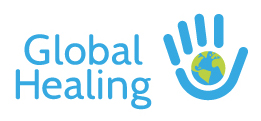What do blood safety, the Republic of Georgia, and fly-fishing all have in common?
They are some of the diverse interests of our incredible volunteer Ruth Sylvester! She is the Director of Regulatory Services at America’s Blood Centers and has been volunteering with Global Healing since 2013. Currently, she is the Quality Management Trainer for our Georgian National Blood Safety Reform Program, launched in 2011 to improve the availability of safe blood in the Republic of Georgia.
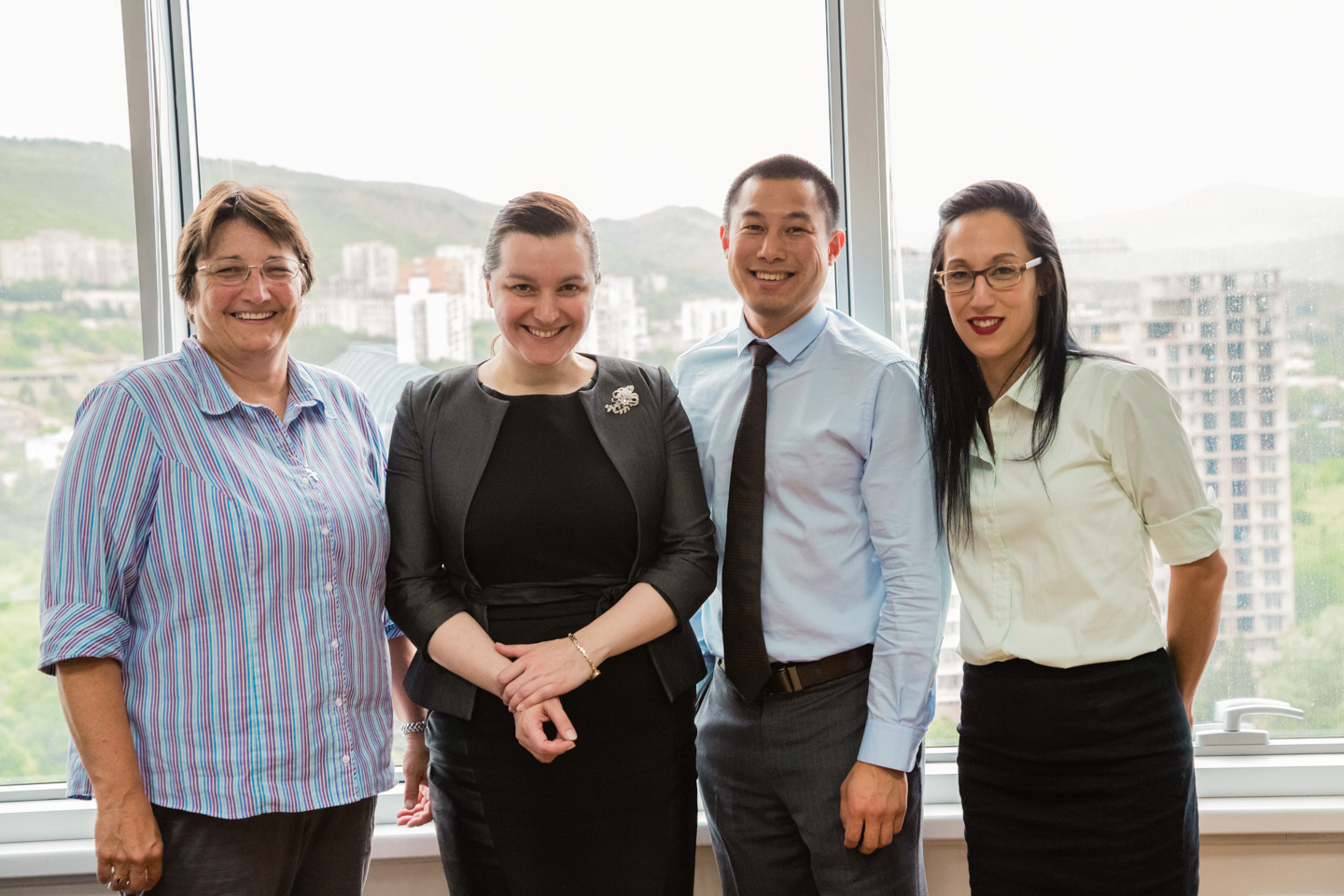
Ruth Sylvester (at left) and Global Healing staff meet with Miriam Jashi of the Ministry of Health in Tbilisi, Georgia.
What do you find most rewarding about your volunteer work?
I’ve been very fortunate in my life and have always had a desire to give back. As a Global Healing volunteer, I am lucky to be able to teach subjects that I truly care about. I love having the opportunity to help improve the safety of transfusion in countries that are still developing their blood banking operations. I am able to share my knowledge, meet new people from different cultures, and travel to new places. On my volunteer trips, I am immersed in the day-to-day experiences of my Georgian counterparts and grow both personally and professionally as a result.
You’ve taught in the past – what new kinds of challenges did you face teaching abroad?
Since I don’t speak Georgian, teaching with an interpreter was a new experience. I was lucky to have a great interpreter, which made it easy.
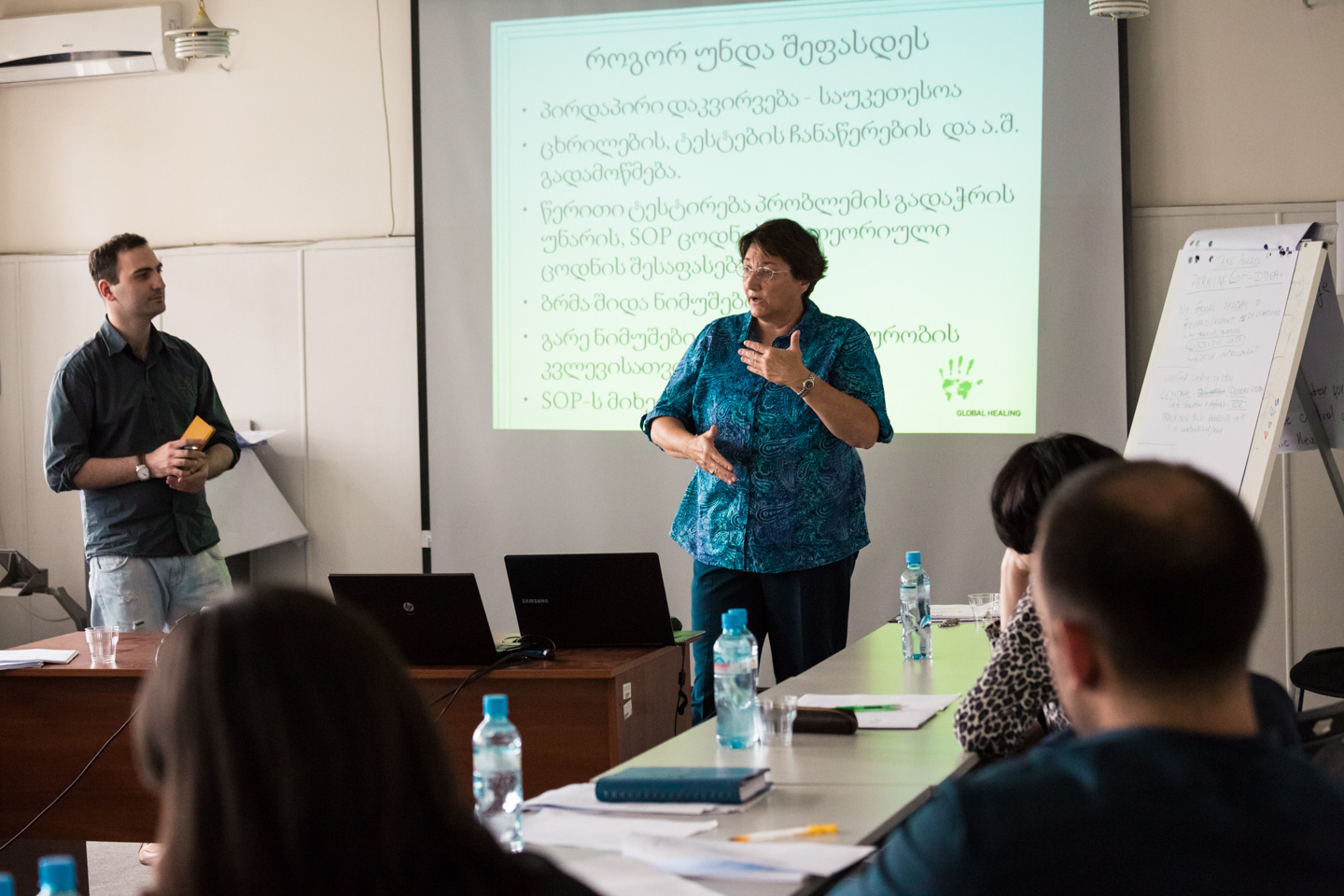
At left, Alexander Vassilieyv (Ruth’s translator) helps to bridge the language gap and allows her to share her expertise with the Georgian NCDC.
On your trips you’ve covered topics in Quality Management for blood services in. How do improved quality practices impact patient care?
When a patient receives a transfusion, we want to ensure that the blood available is free from TTIs – transfusion transmissible infections. The safety of blood products transfused to patients is dependent on the quality of the operations that manufacture it. The topics I cover in my courses, Good Manufacturing Processes (GMPs) and Quality Training, instill and reinforce practices that improve the safety of the blood supply. By improving blood bank operations, blood bank staff are reducing the risk of infection for patients who receive blood transfusions.
Your work is about improving the lives of the Georgian people, and food plays a starring role in Georgian culture. Do you have a favorite dish?
I don’t remember the specific names of the dishes. What I do remember is that everywhere we ate there was always music, laughter and dancing. The Georgians are a fun-loving people and so welcoming to new people.

At dinner in Tbilisi, Georgia with Jo Ann Medical Center staff.
Tell us a little more about a day in your life. What are you reading right now? Do you have any book recommendations?
What?? I read woodworking books and right now one on how to flyfish. It’s called Fly Fishing: A Woman’s Guide by Dana Rikimaru.
(Readers: Check out the book here on Amazon Smile – then make sure to select Global Healing as your desired organization! A percentage of your purchase will be donated to help us continue improving healthcare worldwide.)
Thanks for sharing. Is there anything else about your volunteer experience you’d like to share with us?
I wasn’t sure what I was getting into exactly, but have been so impressed with the staff of Global Healing and the work you do. I am proud to have been able to help another country improve their operations. That would not have been possible without Global Healing.
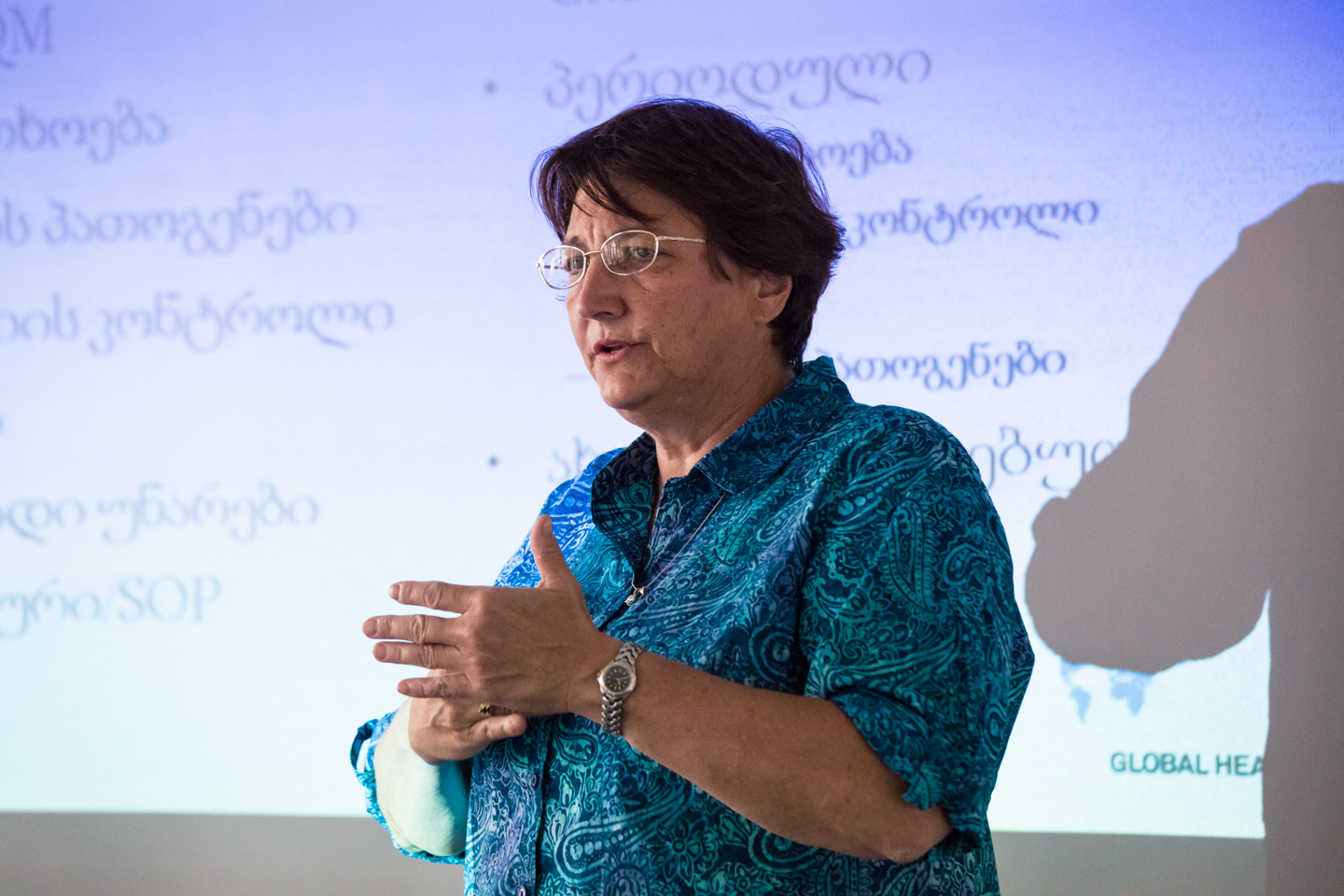
Ruth Sylvester delivers a lecture on Good Manufacturing Practices (GMPs) and Basic Quality in blood banking at the Georgian NCDC.
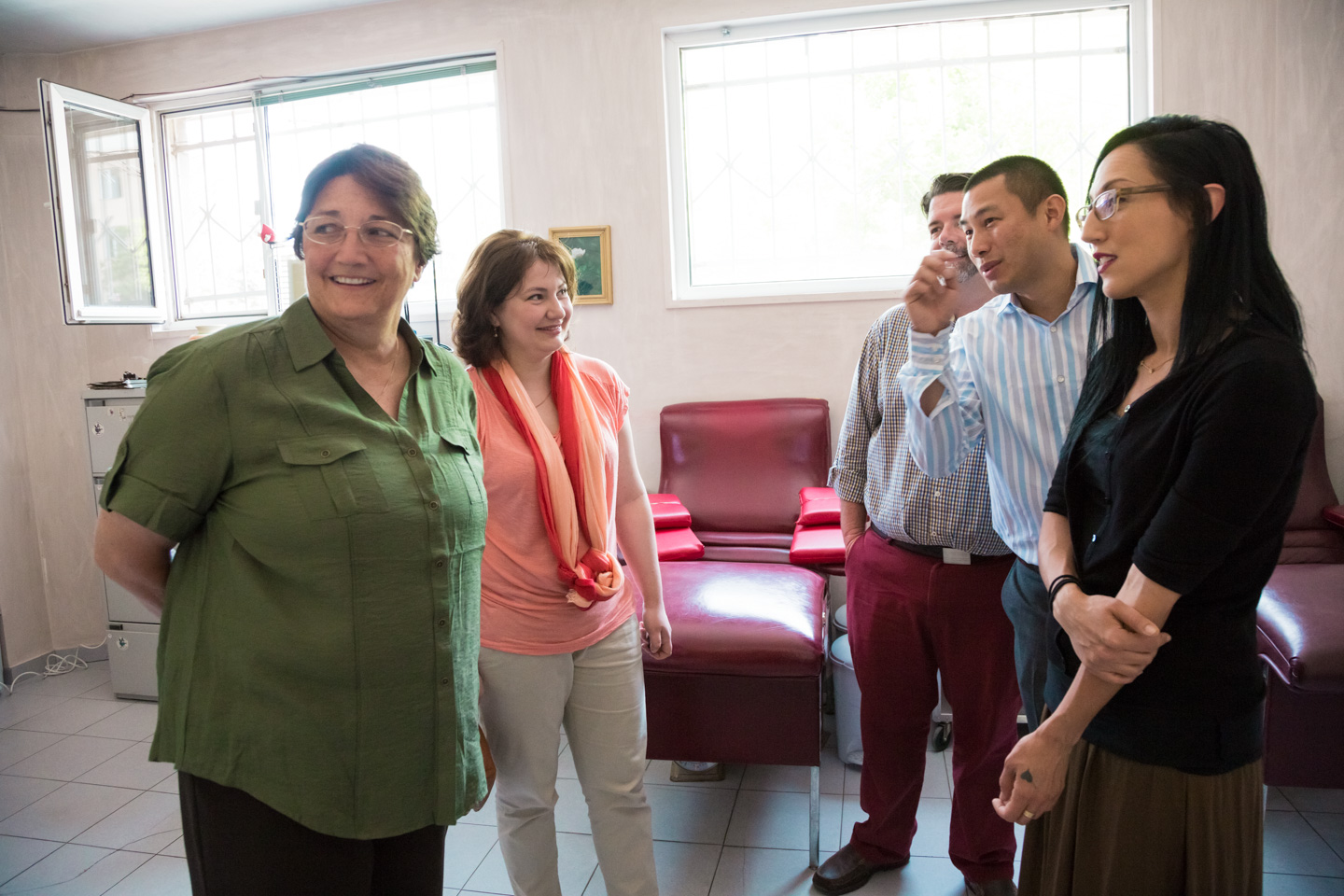
Ruth visits the Jo Ann Medical Center Blood Bank.
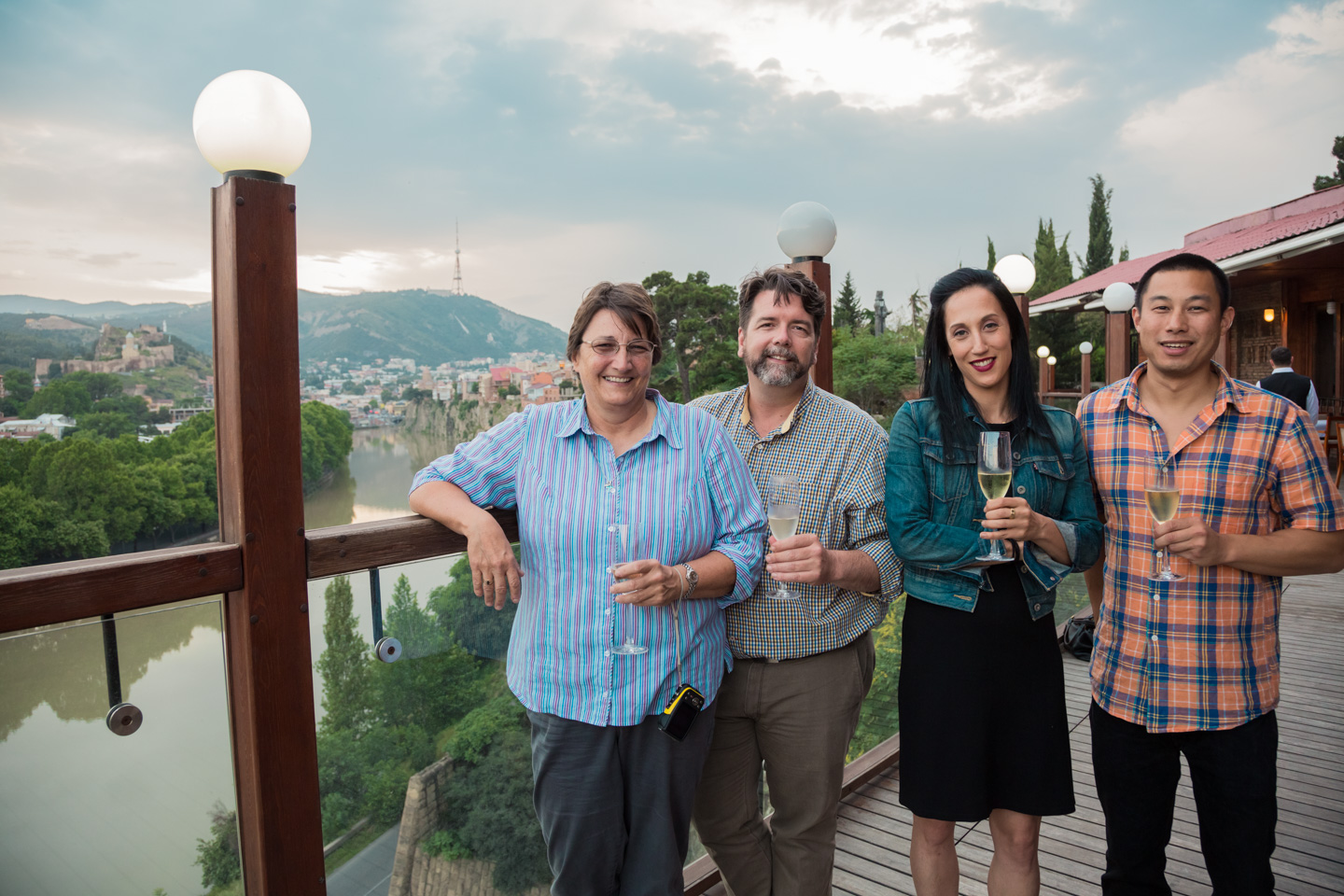
At dinner overlooking the Mtkvari (Kura) River in Tbilisi.
Photos courtesy of Tai Power Seef.
